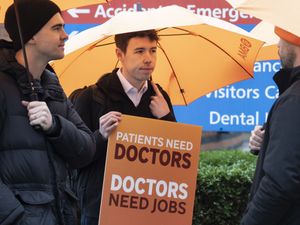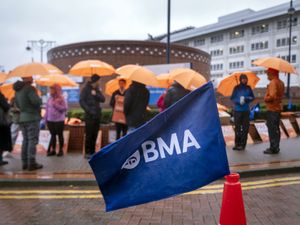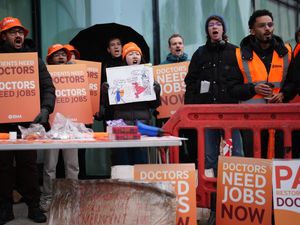We can't get complacent over coronavirus battle, insists Midlands NHS chief
The UK must not get complacent that the battle with coronavirus is nearing an end because hospital admissions are falling, a Black Country NHS boss has insisted.
Toby Lewis, chief executive of the Sandwell and West Birmingham NHS Trust, said although it was a positive sign that cases are dropping, he was wary of the possibility of a deadly second wave of Covid-19 when lockdown restrictions are eased.
Mr Lewis said it was essential that people continue to wash their hands and maintain social distancing when the lockdown is eventually lifted if a resurgence of the virus is to be prevented.
He also raised fears that making wearing of masks compulsory could result in people developing a false sense of security and stopping washing their hands and respecting social distancing as they think they are protected.
The health chief said his hospitals, Sandwell General and Birmingham City, were prepared for the worst-case scenario. A testing centre has been established at the trust's Midland Metropolitan University Hospital as part of Government attempts to meet its 100,000-a-day target by the end of the month.
More Covid-19 coverage:
Data suggests Midlands hospital admissions reached their peak around April 12, and have been gradually falling ever since.
Mr Lewis told the Express & Star: "There is some evidence that admissions with Covid-19 are starting to flatten out or fall but there is a need for real vigilance as we move through April and May. If we look at international evidence, even in countries like Germany, we are seeing warning signs of a second surge.
"It's obvious that at a point of choosing in Whitehall there will need to be different arrangements for how we manage social distancing and isolation.
Unintended
"I think we need to be particularly careful we don't end up with local confusion. Even in some circumstances where more people go to work or some social activity returns, hand-washing and social distancing will be really, really - possibly even more - important. There is a slight risk we will end up getting confused and changing some behaviour."
Mr Lewis, who revealed his hospitals had generally received the required personal protective equipment (PPE) following widespread criticism of the Government, said his trust did not have an official view on compulsory use of face masks in public but warned it could have unintended knock-on effects.
He said: "What we do have a view on is community masks are not an alternative to hand-washing and social distancing. You can see a risk that people will think 'we're wearing a mask and we're alright'. There is a risk people will take their eye off the ball and it will outweigh the upside."
The NHS chief also urged people to trust the advice of medical experts amid increased reports of asymptomatic cases. He said it was vital that even if someone wasn't coughing or displaying a fever, if they have tested positive they must self-isolate.
He also appealed for people to continue to come to hospital if they need to, following a drop in A&E attendances due, at least in part, to fears over Covid-19.
Self-diagnosing
"They are effectively self-diagnosing their symptoms and making the decision they don't need to be cared for. We know people are health aware but none of us are doctors," he said.
Mr Lewis stressed it was crucial that elderly and vulnerable people who are likely to be asked to isolate themselves for a longer period are supported, amid growing concerns about the mental health impact of lockdown.
He said: "My very strong view is it is important that extra attention is paid to the most vulnerable in society. We need to have some thought for how we support people shielding.
"Asking someone to shield for 12 weeks is a huge ask, and we could be asking them to shield for 18 or 24 weeks. That's a significant mental health wellbeing intervention.
"It seems to us investment and intervention on mental health has to be one of the priorities and a real focus of society locally over the next few months."




